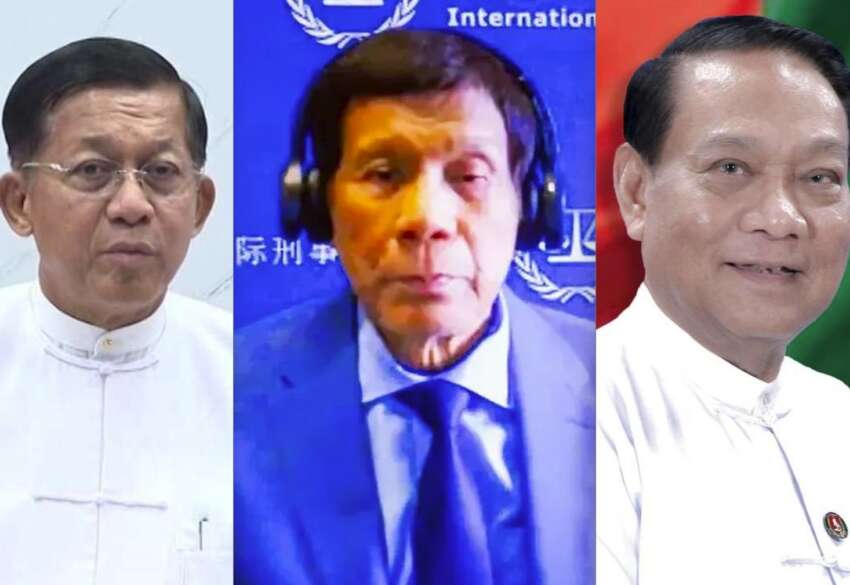
The International Criminal Court’s (ICC) arrest and investigation of former Philippine President Duterte has caused significant concern among Myanmar’s military leadership, particularly Min Aung Hlaing and other military commanders in Naypyidaw. In response to this development, Khin Yi, chairman of the Union Solidarity and Development Party (USDP), has publicly criticized the ICC’s actions, claiming they are misguided and inappropriate.
Through military-affiliated Telegram channels, Khin Yi released a video statement questioning the ICC’s jurisdiction and methods. She argued that the court’s attempt to exercise judicial authority over non-member states constitutes a violation of national sovereignty. Furthermore, she accused the ICC of applying double standards, suggesting that its actions disproportionately affect African and Asian nations while having little impact on other countries. Khin Yi emphasized that law enforcement within sovereign nations must balance human rights considerations with the maintenance of law and order and territorial integrity.
The arrest of former Philippine President Duterte, who faces charges related to mass killings during his anti-drug campaign, took place on March 11, after which he was transferred to The Hague, Netherlands. This development has had notable implications for Min Aung Hlaing and his family, particularly as the ICC prepares potential arrest warrants against them. Sources indicate that Min Aung Hlaing has ordered reports analyzing potential scenarios should the ICC issue warrants for his arrest.
The prosecution of Duterte has created palpable anxiety among military leaders in Naypyidaw, as it demonstrates the ICC’s capability to pursue legal action against former heads of state for crimes against humanity. This situation potentially strengthens international efforts to hold accountable those responsible for war crimes and crimes against humanity in Myanmar. The military leadership’s reaction to Duterte’s case reflects their growing concern about potential international legal consequences for their actions during their rule, particularly regarding human rights violations and violent suppression of civilian opposition.



